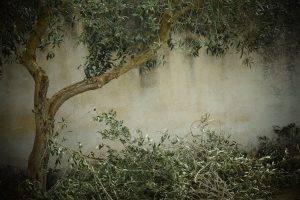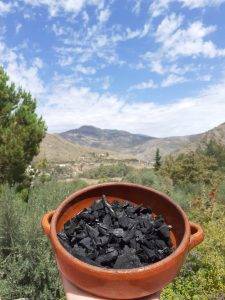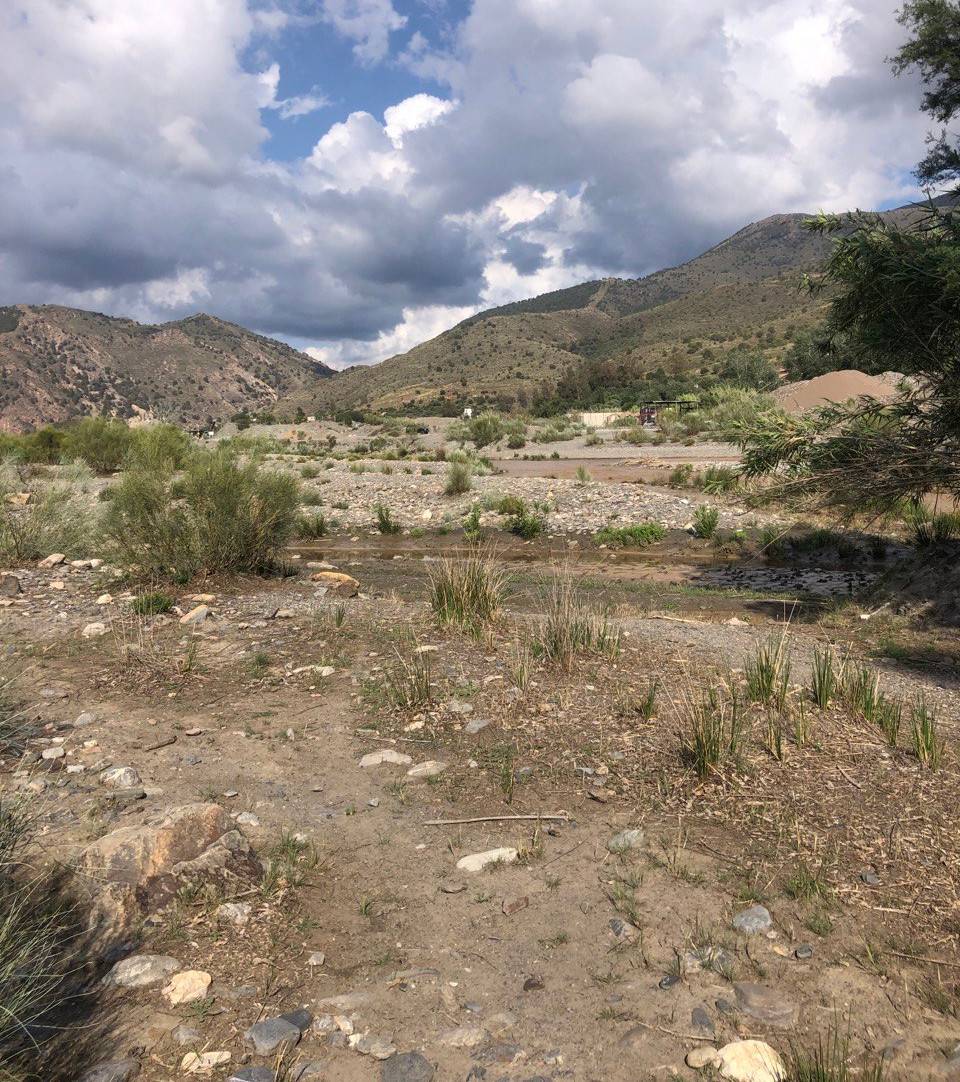Sierra Preta means black mountains, and refers both to our lovely region of the Sierra Nevada and to incredibly productive Brazilian Terra Preta soils. It symbolises our ambition to cover the whole of the cultivated Sierra Nevada with biochar in order to increase sustainability and resilience of farmland ecosystems.
At Sierra Preta, we turn problems into solutions. We process agricultural waste to produce high-quality biochar to increase the sustainability and resilience of local farmland ecosystems. We focus on developing decentralized and community-driven pyrolysis processes to create environmental and social value. We are rooted to our local environment, and aim to regenerate Andalusian soils, working towards climate change mitigation and adaptation by stopping the progression of the desert in Southern Spain.

Our Vision is to Regenerate Productive Ecosystems and Stop Desertification.

Starting with our valley, we want to contribute in the reconstruction of a diverse and resilient ecosystem which will be able to mitigate the effect of climate change by reducing further emissions and even begin to reverse it by removing carbon dioxide from the air. In the meantime, biochar fosters adaptation to climate change by restoring soil health, biodiversity, nutrient and water retention. Therefore serving as the perfect tool to reduce both the impact and the frequency of droughts in the region.
We believe that only together, we can raise to the challenge of regenerating our soils, farmlands and ecosystems. Hence, the empowerment of local farmers and communities through developing highly distributed, cost efficient and small to medium-scale biochar production is at the core of our strategy.
Environmental Benefits
A Case Study of the Spanish Alpujarras
We are located in the Spanish Sierra Nevada, a chain of mountains located on the coastline of Granada. After years of observation, we have identified that Biochar production and application on a large scale could be a solution to many of the environmental challenges the region is experiencing.
Global warming is making the difficult dry climate of this region worse than it has been. Current trends are leading us towards desertification through impact on soil quality, which becomes depleted of both its nutrients and water retention capacities. Biochar is the perfect addition for these kind of soils for them to recover their fertility.
Many trees are suffering, and the long-lasting intensive agriculture of the Andalusian coast resulted in worsening the dry conditions of the local mountains. Many reforestation projects are very active to try and counterbalance these effects. However, they are struggling with the low success rate of these new trees due to soil quality and dry conditions. Adding Biochar to the substrate of newly planted trees and within tree nurseries themselves could make an incredible difference to the success rate of trees planted in the area.

The region is home to intensive production of fruiting trees. At the end of the winter, immense quantities of wood residues (mostly olive) are left as waste. This wood is mostly being burnt on site, participating in local air-pollution furthering the impact of climate change. The same olive oil production has another by product in olive pips and pulp, a resource we could consider for Biochar production as well. The high environmental stakes and potential political interest in the region makes it a very interesting case study for Biochar production.
Through offering distributed Biochar generation to local farmers and approaching local decision-makers, we are thriving to deliver Biochar production and the associated co-benefits where it is all needed. Covering the whole of the Sierra Nevada mountain range with Biochar!
